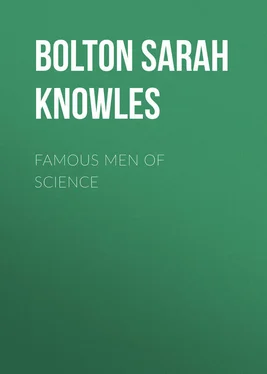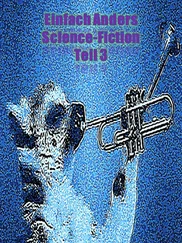Sarah Bolton - Famous Men of Science
Здесь есть возможность читать онлайн «Sarah Bolton - Famous Men of Science» — ознакомительный отрывок электронной книги совершенно бесплатно, а после прочтения отрывка купить полную версию. В некоторых случаях можно слушать аудио, скачать через торрент в формате fb2 и присутствует краткое содержание. ISBN: , Жанр: foreign_language, foreign_antique, foreign_prose, Биографии и Мемуары, на английском языке. Описание произведения, (предисловие) а так же отзывы посетителей доступны на портале библиотеки ЛибКат.
- Название:Famous Men of Science
- Автор:
- Жанр:
- Год:неизвестен
- ISBN:http://www.gutenberg.org/ebooks/35489
- Рейтинг книги:3 / 5. Голосов: 1
-
Избранное:Добавить в избранное
- Отзывы:
-
Ваша оценка:
- 60
- 1
- 2
- 3
- 4
- 5
Famous Men of Science: краткое содержание, описание и аннотация
Предлагаем к чтению аннотацию, описание, краткое содержание или предисловие (зависит от того, что написал сам автор книги «Famous Men of Science»). Если вы не нашли необходимую информацию о книге — напишите в комментариях, мы постараемся отыскать её.
Famous Men of Science — читать онлайн ознакомительный отрывок
Ниже представлен текст книги, разбитый по страницам. Система сохранения места последней прочитанной страницы, позволяет с удобством читать онлайн бесплатно книгу «Famous Men of Science», без необходимости каждый раз заново искать на чём Вы остановились. Поставьте закладку, и сможете в любой момент перейти на страницу, на которой закончили чтение.
Интервал:
Закладка:
"Many gentlemen and senators, even the oldest, have ascended at various times the highest bell-towers in Venice, to spy out ships at sea, making sail for the mouth of the harbor, and have seen them clearly, though without my telescope they would have been invisible for more than two hours. The effect of this instrument is to show an object at a distance of, say, fifty miles, as if it were but five miles off.
"Perceiving of what great utility such an instrument would prove in naval and military operations, and seeing that His Serenity greatly desired to possess it, I resolved four days ago to go to the palace and present it to the Doge as a free gift. And on quitting the presence-chamber, I was commanded to bide awhile in the hall of the senate, whereunto, after a little, the Illustrissimo Prioli, who is Procurator and one of the Riformatori of the University, came forth to me from the presence-chamber, and, taking me by the hand, said, 'that the senate, knowing the manner in which I had served it for seventeen years at Padua, and being sensible of my courtesy in making it a present of my telescope, had immediately ordered the Illustrious Riformatori to elect me (with my good-will) to the professorship for life, with a stipend of one thousand florins yearly.'"
This must have been a comfort to the now famous Galileo, as it was, doubtless, to the useless Michelangelo, and the two brothers-in-law! He could now live in comparative peace and rest.
On his return to Padua, he began eagerly to study the heavens. He found that the surface of the moon was mountainous; that the Milky Way was composed of an immense number of small stars and nebulous matter; that Orion, instead of being made up of seven heavenly bodies, had over five hundred stars; and that the Pleiades were not seven, but thirty-six. In January, 1610, he discovered the four moons of Jupiter, and that they revolved around him. July 25 of the same year, he discovered the ring of Saturn; in October, the phases of Venus, and later, the solar spots.
Florence and Padua were in a blaze of excitement. These new discoveries seemed to prove that the earth was not the centre of the universe, but that Copernicus was right when he declared the sun to be the centre. Great opposition began to develop itself. Some of the Aristotelians declared that the telescope of Galileo showed things which do not exist. "It was ridiculous," they said, "that four planets (Jupiter's moons) were chasing each other around a large planet.
"It is angels who make Saturn, Jupiter, the sun, etc., turn round. If the earth revolves, it must also have an angel in the centre to set it in motion; but if only devils live there, it would, therefore, be a devil who would impart motion to the earth.
"The planets, the sun, the fixed stars, all belong to one species; namely, that of stars – they, therefore, all move, or all stand still.
"It seems, therefore, to be a grievous wrong to place the earth, which is a sink of impurity, among the heavenly bodies, which are pure and divine things."
Libri, one of the Pisan professors, spoke of the new discoveries as "celestial trifles." When he died, Galileo naïvely remarked, "Libri did not choose to see my celestial trifles while he was on earth; perhaps he will, now he is gone to heaven."
Galileo now longed for freedom from teaching, that he might have his time for study and writing. He had planned, he said, "two books on the system of the universe; an immense work (idea, concetto ), full of philosophy, astronomy, and geometry: three books on local motion, a science entirely new; no one, either ancient or modern, having discovered any of the marvellous accidents which I demonstrate in natural and violent motions; so that I may, with very great reason, call it a new science, discovered by me from its very first principles: three books on mechanics, two on the demonstration of its first principles, and one of problems; and though this is a subject which has already been treated by various writers, yet all which has been written hitherto neither in quantity nor otherwise is the quarter of what I am writing on it. I have also various treatises on natural subjects, on sound and speech, on sight and colors, on the tide, on the composition of continuous quantity, on the motion of animals, and others; besides, I have also an idea of writing some books on the military art, giving not only a model of a soldier, but teaching, with very exact rules, all which it is his duty to know that depends on mathematics; as, for instance, the knowledge of encampment, drawing up battalions, fortifications, assaults, planning, surveying, the knowledge of artillery, the use of various instruments, etc."
With all this work in mind, he resigned the professorship at Padua, and removed to Florence, the Grand Duke Cosmo II. giving him a yearly salary of about one thousand dollars, and the title of Philosopher to His Highness.
His first thought, as ever, was for his family. He asked an advance of two years' salary, and paid the dowry debts of his sisters' grasping husbands.
In 1611, his expenses paid by the Grand Duke, he went to Rome to show his "celestial novelties," as they were called, to the pope and the cardinals. He was received with great attention, and all seemed delighted to look upon the wonders of the heavens, provided always that nothing could be proved against the supposed assertion of the Bible that the earth did not move!
Galileo soon published his "Discourse on Floating Bodies," which aroused violent opposition; "Spots observed on the Body of the Sun," and the "Discourse on the Tides."
Four years later, he was again in Rome to plead for the Copernican system, and to defend his own conduct in advocating a thing in opposition to the Catholic church. He said: "I am inclined to think that the authority of Holy Scripture is intended to convince men of those truths which are necessary for their salvation, and which, being far above man's understanding, cannot be made credible by any learning, or any other means than revelation by the Holy Spirit. But that the same God, who has endowed us with senses, reason, and understanding, does not permit us to use them, and desires to acquaint us in any other way with such knowledge as we are in a position to acquire for ourselves by means of those faculties, that , it seems to me, I am not bound to believe, especially concerning those sciences about which the Holy Scriptures contain only small fragments and varying conclusions; and this is precisely the case with astronomy, of which there is so little that the planets are not even all enumerated."
However, in spite of Galileo's logic, the church decreed that all books which stated the Copernican system as true should be prohibited; as a mathematical hypothesis, it might be speculated upon. This was a great disappointment to Galileo, who loved and revered the Roman Catholic faith. He went home to the Villa Segni, at Bellosguardo, near Florence, and for seven years led a studious and secluded life.
His greatest comfort, during these quiet years, was the devotion of his daughter, Polissena, who had entered a convent as Sister Maria Celeste. While in Padua, Galileo had three children by Marina Gamba, a Venetian woman of inferior station. She afterwards married a man of her own class, and Galileo took his children to his own home; a condition of things possible with the low moral standard of the time. The two daughters were placed in a convent, while the son, Vincenzo, was educated for the profession of medicine, but he seems to have been a disappointment and a source of discomfort.
Maria Celeste, in the convent of St. Matthew, loving and tender, and helpful to all around her, wrote constantly to the man whom she idolized. "I put by carefully," she says, "the letters you write me daily, and when not engaged with my duties, I read them over and over again. This is the greatest pleasure I have, and you may think how glad I am to read the letters you receive from persons who, besides being excellent in themselves, have you in esteem."
Читать дальшеИнтервал:
Закладка:
Похожие книги на «Famous Men of Science»
Представляем Вашему вниманию похожие книги на «Famous Men of Science» списком для выбора. Мы отобрали схожую по названию и смыслу литературу в надежде предоставить читателям больше вариантов отыскать новые, интересные, ещё непрочитанные произведения.
Обсуждение, отзывы о книге «Famous Men of Science» и просто собственные мнения читателей. Оставьте ваши комментарии, напишите, что Вы думаете о произведении, его смысле или главных героях. Укажите что конкретно понравилось, а что нет, и почему Вы так считаете.












